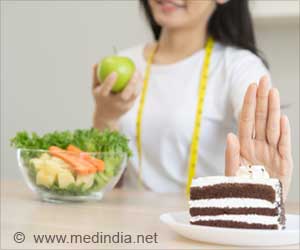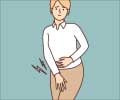Discover how vitamin E can ease period cramps naturally, offering relief and comfort during menstruation.
- Vitamin E supplements may alleviate menstrual discomfort by reducing inflammation and promoting muscle relaxation
- Excessive intake of vitamin E can lead to adverse effects, emphasizing the importance of responsible usage
- Consulting a healthcare professional is crucial before starting any supplement regimen, especially for those with underlying health conditions or taking medications
Evaluation of the effect of vitamin E on pelvic pain reduction in women suffering from primary dysmenorrhea
Go to source).
Can Vitamin E Help Alleviate Period Cramps?
Research suggests that vitamin E supplements may offer relief from menstrual cramps. These supplements work by reducing inflammation and promoting muscle relaxation in the uterus. Additionally, vitamin E has the potential to regulate hormone levels, leading to more balanced menstrual cycles and potentially reducing the severity of cramps over time.A 2022 analysis published in the Clinical Nutrition ESPEN journal found evidence supporting the efficacy of vitamin E supplements in reducing period pain. Specifically, prolonged use over two months showed promising results in alleviating discomfort associated with menstrual cramps (2✔ ✔Trusted Source
Vitamin E may relieve menstrual pain
Go to source).
Dietary Sources of Vitamin E
Supplements can offer concentrated doses, incorporating foods rich in vitamin E into your daily diet is equally advantageous.Nuts:
Almonds, hazelnuts, and sunflower seeds are rich in vitamin E.
Seeds:
Incorporate flax seeds, pumpkin seeds, and chia seeds into your meals for a vitamin E boost.
Leafy Greens:
Spinach, kale, and Swiss chard are not only nutritious but also contain ample amounts of vitamin E.
Fortified Cereals:
Look for cereals fortified with vitamin E to add to your breakfast routine.
While these dietary sources contribute to overall vitamin E intake, relying solely on them may not provide sufficient amounts to significantly alleviate cramping. It's essential to maintain a balanced diet and consider supplementation under the guidance of a healthcare professional for targeted relief from menstrual discomfort.
Potential Side Effects and Considerations of Vitamin E Supplement
Vitamin E supplements offer potential benefits, it's crucial to use them responsibly and be aware of potential side effects.Excessive Dosage:
Exceeding the recommended daily dosage of 1,000 milligrams can lead to adverse effects such as nausea, diarrhea, and abdominal cramping.
Serious Complications:
In some cases, excessive intake may result in more severe symptoms including blurred vision, headaches, or an increased risk of bleeding.
Consultation with Healthcare Professional:
Before starting any supplement regimen, it is imperative to consult with a healthcare professional. This is especially important for individuals with underlying health conditions or those taking medications, as interactions and adverse effects may occur.
By being informed about potential side effects and consulting with a healthcare professional, individuals can ensure safe and responsible use of vitamin E supplements while maximizing their potential benefits in managing period cramps.
Interactions with Medications
Certain medications should not be combined with vitamin E supplements due to potential interactions.Anticoagulants:
Anticoagulants such as warfarin or antiplatelet drugs like aspirin may heighten the risk of bleeding when taken alongside vitamin E.
Chemotherapy Medications:
The effectiveness of chemotherapy medications may be compromised when mixed with vitamin E supplements.
Statin Medications:
Statin medications prescribed for lowering cholesterol levels might exhibit reduced effectiveness when combined with vitamin E.
Immunosuppressive Drugs:
Immunosuppressive drugs like cyclosporine or tacrolimus may experience altered effectiveness when taken concurrently with vitamin E.
Hormonal Medications:
Hormonal medications including birth control pills or hormone replacement therapy may also be affected by vitamin E supplements.
It's crucial to consult with a healthcare professional before introducing vitamin E supplements, especially if you are taking any of these medications. Understanding potential interactions is essential for ensuring your overall health and well-being.
Alternative Ways to Manage Period Cramps
In addition to vitamin E supplementation, several alternative strategies can effectively alleviate period cramps.Heat Therapy:
Applying a heating pad to the abdominal area or taking a warm bath can help relax uterine muscles and reduce cramping.
Gentle Exercise:
Engaging in activities like walking or practicing yoga can release endorphins, which act as natural pain relievers and alleviate discomfort.
Nutrient-Rich Diet:
Consuming foods rich in calcium, magnesium, and omega-3 fatty acids while avoiding caffeine and alcohol can help minimize period cramps and support overall menstrual health.
Stress Management:
Practices such as mindfulness, deep breathing, or meditation can help manage stress levels, which can exacerbate period cramps.
Herbal Remedies:
Some herbs like ginger, cinnamon, or chamomile possess anti-inflammatory properties and can be consumed as teas or supplements to reduce menstrual pain and inflammation.
Incorporating these alternative approaches into your routine alongside vitamin E supplementation can provide comprehensive relief from period cramps and contribute to overall well-being during menstruation.
While vitamin E supplementation can be part of a comprehensive strategy for managing period cramps, it's essential to approach treatment holistically. Incorporating dietary sources of vitamin E, adopting healthy lifestyle habits, and consulting with healthcare professionals are crucial steps towards effectively managing menstrual discomfort.
References:
- Evaluation of the effect of vitamin E on pelvic pain reduction in women suffering from primary dysmenorrhea - (https://pubmed.ncbi.nlm.nih.gov/23447916/)
- Vitamin E may relieve menstrual pain - (https://endometriosis.org/news/research/vitamin-e-may-relieve-menstrual-pain/)
Source-Medindia
















